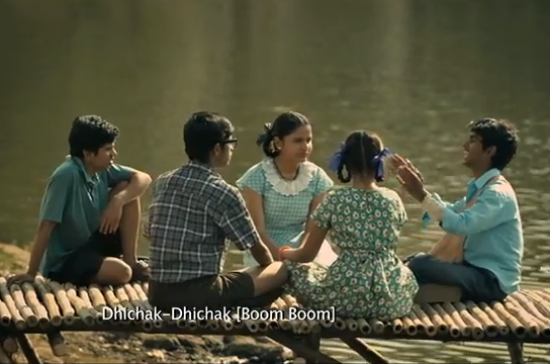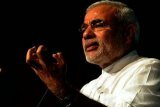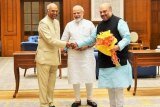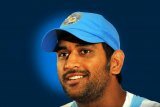Review: Ravi Jadhav’s Balak Palak

Just so that, when the young boys and girls on the threshold of teen age who are at the centre of the Marathi comedy film, start reading porn fiction (procured from their wiser friend probably residing in a nearby slum), the neighbourhood uncle (Kishore Kadam) can walk up to their fathers and caution them about not paying enough attention to the boys’ activities without being talked off or misunderstood.
More like this
Like these kids, we fuelled our imagination with romantic picture-books and the synchronised gyrations of Hindi cinema (Jadhav has selected the perfect dream sequence song from Saheb to illustrate reveries projected on a makeshift screen in the courtyard with the entire congregation in attendance), before we discovered pornography, which, to the boys, was thrilling, while the girls were often queasy.
Balak Palak captures the confusion of that age where suddenly, without any prior warning, your body starts coming into its own, you discover sex and attraction and your childhood is thrown into a vortex of confusion. At least when we were growing up, parents weren’t at hand to volunteer information and given the awkward nature of communication between the two generations, asking them was nearly impossible.
In Balak Palak or BP (which is also an abbreviation for the Blue Prints that were once watched on video cassettes in parlours or on rented VCRs) it all starts with the sudden disappearance of a young woman who has apparently done something horrible (described in Marathi as ‘eating shit’) that the children are curious to find out about. They try asking their parents, but are shooed away. Inevitably then, they must turn to the wise one, the boy who lives on the wrong side of life and hence has greater access to its truths. He calls it ‘dhichak dhichak’ and takes them around the chawl in a bid to show them practical examples of it, without much success.
Meanwhile an older sister of one of the girls in the group teaches her sibling how to dress smart and dance like a movie star. Before long, one of the boys has fallen in love with her and suddenly, she’s transformed from his ‘tai’ to a nymph or a potential sex object. The four friends who once played together harmoniously discover their ‘otherness’ and can’t get past sexual identities––the girls accuse the boys of trying to make a pass, the boys don’t know how to cope with their own transformed feelings about women and so on.
Liberally peppered with humour and only occasionally preachy, Balak Palakis a refreshing nostalgic trip for those who grew up in the ‘70s and ‘80s in Mumbai, but equally, a heartfelt plea for parents to shed their discomfort about sex and help their kids make sense of the turmoil of growing up.
Deepa Deosthalee is a film critic and a regular contributor to Cinemascope column. The views and opinions expressed in this article are those of the author and does not reflect the views or position of IndiaNewsBulletin.com. More of Deepa's work can be found on her site Film Impressions.
Most read
- 2017: Full list of Indian States, capitals and their Chief Ministers; Nitish Kumar quits and takes oath again as Bihar CM!
- List of all the major rivers of India: Names, Origin and Length
- Ram Nath Kovind is 14th Indian President after Pranab Mukherjee. Here's a list of all Indian Presidents since 1950
- Indian cabinet September 2017: Full list of Ministers and their portfolios in Narendra Modi government
- Dosa recipe: How to make crispy Paper Dosa and Masala Dosa
- SIIMA 2016 Pics: South Indian Cinema stars dazzle in Singapore for the awards red carpet
- Commonwealth Games 2014: Full list of Indian gold, silver and bronze medal winners
- South Indian actress Trisha Krishnan’s father passes away
- Review: Southall Travel (Also Travel Trolley and Fly Sharp)
- Recipe: Misal Pav – how to make missal masala, usal and tarri
India News Bulletin by email
More Lead Stories
- Pics: Salman Khan in London for his Global Diversity Award
- Osterley Gymkhana London hosts 70th Indian Independence Day Celebrations
- Indian tourists involved in fatal collision on M1 motorway involving minibus and 2 lorries
- 2017: Full list of Indian States, capitals and their Chief Ministers; Nitish Kumar quits and takes oath again as Bihar CM!
- Indian train meals not protected from rats, cockroaches, dust, insects, warn auditors












